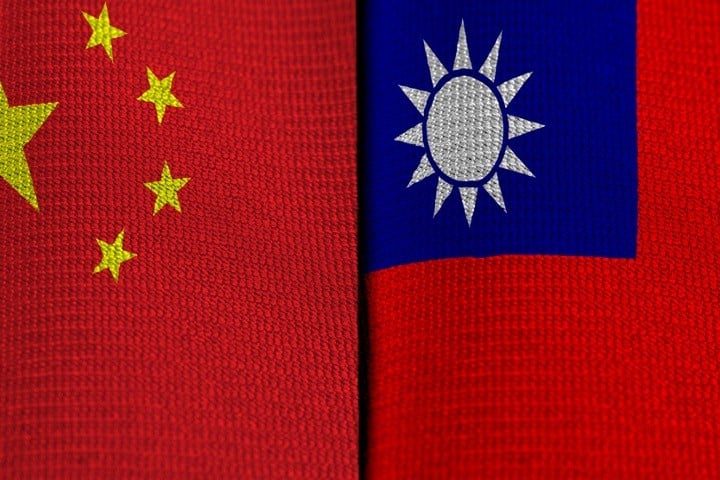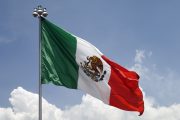
On January 7, China’s Foreign Ministry declared that Beijing has sanctioned five American defense industry firms following “gravely wrong actions taken by the US,” and as a countermeasure to Washington’s move to proceed with new arms sales to Taiwan and unilaterally sanction Chinese businesses.
China’s Foreign Ministry said the U.S. sanctions enforced on Chinese companies and individuals “under various false pretexts” harm “China’s sovereignty and security interests, [and] undermine the peace and stability across the Taiwan Strait.” “China strongly deplores and firmly opposes this and has made solemn démarches to the US,” the statement indicated.
Beijing’s decision came after Washington authorized a $300 million weapons sale to Taipei last month in anticipation of Taiwan’s presidential and parliamentary elections on January 13, in which U.S.-friendly Vice President Lai Ching-te of the ruling Democratic Progressive Party (DPP) is the front-runner, based on recent polls.
Earlier in 2023, the administration of U.S. President Joe Biden approved a direct military transfer of $80 million to Taiwan under a program usually used for sovereign states, Reuters reported.
The American firms impacted by the new sanctions are BAE Systems Land and Armament, Alliant Techsystems Operation, AeroVironment, ViaSat, and Data Link Solutions, according to the Chinese Foreign Ministry, which elaborated that the measures include freezing the companies’ assets and banning Chinese organizations and individuals from working with them.
Beijing urged the United States to stick to the one-China principle and not supply arms to Taipei, and warned that there will be a “strong and resolute response” if Washington persists with “illegal unilateral sanctions.”
Though Taiwan has long been self-governing, China regards the island part of its territory to be reunited with the mainland, by force if Taipei formally declares independence. The U.S. has officially acknowledged China’s sovereignty over Taiwan. Nonetheless, in 2022, Biden said that Washington would defend Taipei should Taiwan face an “unprecedented attack” by Beijing.
Chinese President Xi Jinping told Biden in November 2023 that Taiwan is the largest and “most potentially dangerous” issue in bilateral relations, according to Reuters.
Last weekend, Taiwan’s politicians were busy in “land battles,” or in-person campaigning, before the January 13 legislative and presidential elections.
Politicians of the major parties were busy across the island canvassing for votes, in a shift from the online campaigns — called “air battles” — they had been waging to attract the young electorate.
On January 6, the ruling DPP and opposition Kuomintang (KMT) unleashed their big guns at rallies in New Taipei and Taoyuan cities.
At a rally in New Taipei City, the DPP heavyweights — Taiwanese President Tsai Ing-wen, Kaohsiung Mayor Chen Chi-mai, and former Premier Su Tseng-chang — addressed the crowd before DPP vice-presidential candidate Hsiao Bi-khim and presidential candidate Lai Ching-te made their appearances to huge cheers.
Supporters waving green and pink flags, some of whom were transported by bus to the rally held at a park in Xinzhuang district, New Taipei City, welcomed Lai with “Zong tong hao,” meaning “Hello, President.”
Singers had previously warmed up the 30,000-strong crowd with evergreen songs such as Passionate Desert, while vendors sold items including green baseball-style jackets such as those being worn by the DPP leaders, and stickers and keychains bearing the caricatures of Lai and Hsiao.
At the rally, a retiree in her 60s who gave her name only as Ms. Chiang, told The Straits Times why she would be supporting Lai and Hsiao.
“If (Mr.) Hou gets elected, he will sell Taiwan away and allow Chinese students to come here and compete for jobs,” she added, alluding to presidential candidate Hou Yu-ih of the KMT, which is more China-friendly than the independence-leaning DPP.
Lai and Hsiao are regarded as the most likely candidates to win the presidential election, having led their KMT and Taiwan People’s Party (TPP) rivals in most opinion polls before a blackout on the publication of such survey results happened on January 3.
In Taoyuan, a city in northwestern Taiwan, Hou and running mate Jaw Shaw-kong were joined by Taipei Mayor Chiang Wan-an, former Kaohsiung Mayor Han Kuo-yu, and KMT chairman Eric Chu at a rally attended by some 100,000 people.
Notably, one big name in the KMT-led pan-Blue camp was missing: businessman and Foxconn founder Terry Gou, who initially hoped to run for president but opted against it on Nomination Day.
However, the KMT camp has not excluded the possibility that Gou could unite behind its candidates to concentrate on unseating the DPP government.
Should Lai win, it would mark the first time that a party in Taiwan has retained power for more than two consecutive terms since direct presidential elections were introduced in 1996. Nonetheless, analysts have contended that another victory for the DPP could mean prolonged hostilities between Taipei and Beijing.
When Tsai Ing-wen was elected president in 2016, Beijing cut off official communication with Taipei, quoting her refusal to back the notion of a single Chinese nation.
“We already know that Beijing refused to work with Tsai Ing-wen and was deeply suspicious of her and her motives. If they couldn’t get along with Tsai, they wouldn’t work with Lai,” said Dr Kharis Templeman, a Taiwan studies specialist at Stanford University.
That being said, China has indicated a considerable dislike of the DPP’s Lai.
“Beijing does not like Tsai, but they don’t actually name her in their messaging, choosing instead to put general blame on the party for deteriorating cross-strait ties,” Assistant Professor James Yifan Chen from New Taipei’s Tamkang University told The Straits Times. “But Beijing has directly named Lai as a troublemaker and a separatist almost daily in recent months.”
While serving as premier in 2017, Lai described himself as a “practical worker for Taiwan independence.” From Beijing’s perspective, any attempt to declare de jure Taiwanese independence is a red line.
Lai has since toned down on his rhetoric, underscoring that he was not trying to alter the status quo in the Taiwan Strait. “He has clarified that he does not believe there is a need to declare independence, because he considers Taiwan already independent and sovereign,” said Assistant Professor James Lee from Taipei’s Academia Sinica. “In the lexicon of Taiwanese politics, this is a relatively moderate position in favor of the status quo.”


